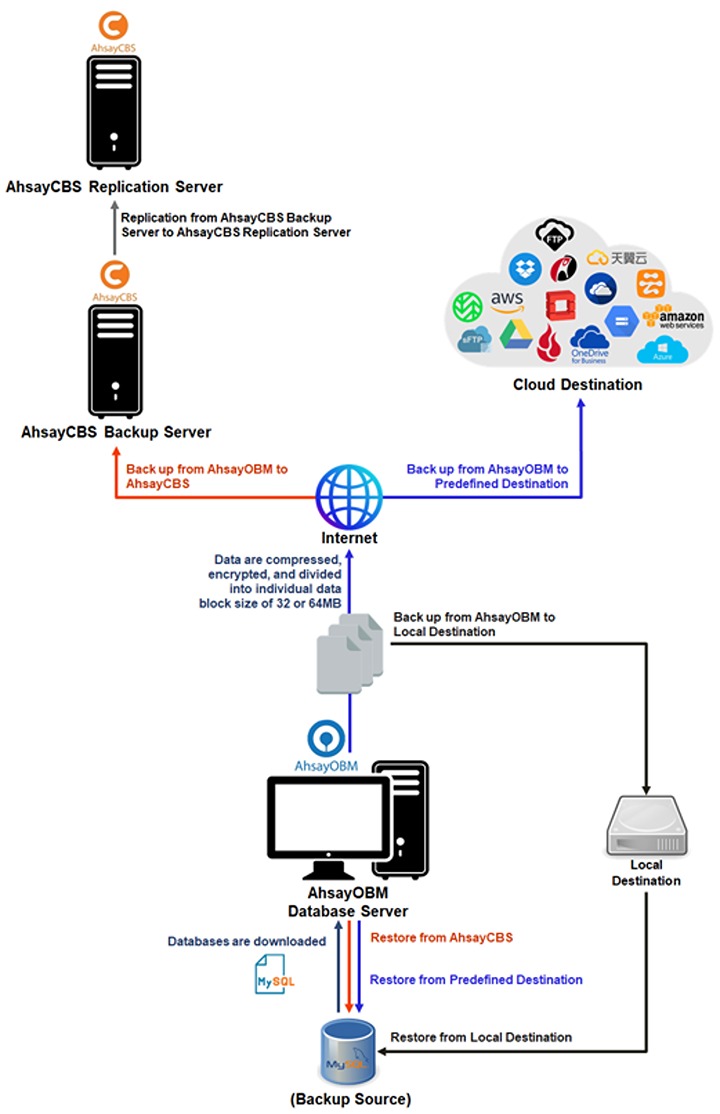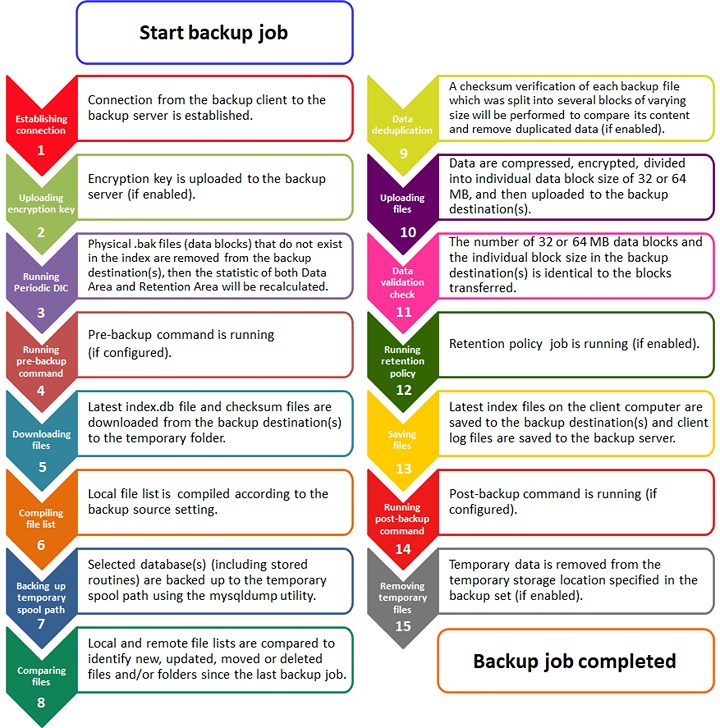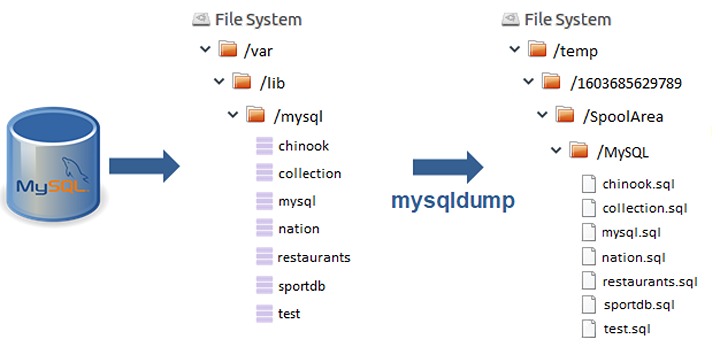MySQL Backup and Restore
Ahsay brings you specialized client backup software, namely AhsayOBM, to provide a set of tools to protect your MySQL Database Server.
We recommend you read first the Overview (GUI) section. This will help you become familiar with the different functions, settings and features that can be configured in AhsayOBM. It will also be helpful to know the different features that can be customized in the backup set before creating one.
This guide will only focus on:
- How to create a MySQL backup set for Windows and Linux
- How to run a backup job for Windows and Linux
- How to recover files from a backup job
Run on Client (Agent-based) Backup
Below is the system architecture diagram illustrating the major elements involved in the backup process among the MySQL Database Server, AhsayOBM and AhsayCBS.
In this user guide, we will focus on the end-to-end backup and restore process using AhsayOBM (Agent-based) as a client backup software.

To better help you understand what goes on during a backup process, here are the steps performed during a backup job.

The steps above are performed during a MySQL Database backup job. For an overview of the detailed process for Steps 3, 5, 11, and 13, please refer to the Backup and Restore (GUI and CLI) pages.
- Periodic Data Integrity Check (PDIC) Process (Step 3)
- Backup Set Index Handling Process
- Start Backup Job (Step 5)
- Completed Backup Job (Step 13)
- Data Validation Check Process (Step 11)
MySQL Database Backup Method
AhsayOBM MySQL Database backup uses a spooling method to make a consistent snapshot of the database(s) for backup.
For each database backup job AhsayOBM will trigger MySQL to spool or make a copy of the database (.sql) file to the temporary folder using the mysqldump utility.

MySQLDump Parameters
Here is the mysqldump parameter list used for generating the spooled dump file:
- --databases
- --password
- --result-file
- --port
- --user
- --host
- --opt
- --quote-names
- --allow-keywords
- --triggers
Example:
For spooling of the "collection" database to /temp folder, the following parameters will be used: Mysqldump --databases collection --user=user1 --password=qwerty --host=localhost --port=3306 --opt --quote-names --allow-keywords --triggers --result-file=/temp/collection.sql
For details on mysqldump parameters, please refer to mysqldump - A Database Backup Program

 Backup and Restore
Backup and Restore